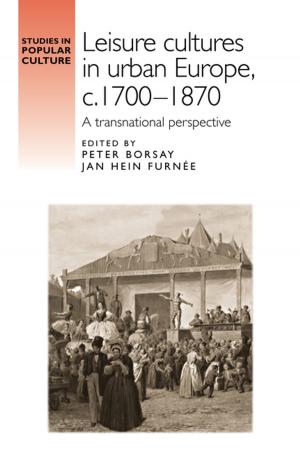Ian McEwan
Nonfiction, History, Modern, 20th Century, Fiction & Literature, Literary Theory & Criticism| Author: | Dominic Head | ISBN: | 9781847795861 |
| Publisher: | Manchester University Press | Publication: | July 19, 2013 |
| Imprint: | Manchester University Press | Language: | English |
| Author: | Dominic Head |
| ISBN: | 9781847795861 |
| Publisher: | Manchester University Press |
| Publication: | July 19, 2013 |
| Imprint: | Manchester University Press |
| Language: | English |
In this survey Ian McEwan emerges as one of those rare writers whose works have received both popular and critical acclaim. His novels grace the bestseller lists, and he is well regarded by critics, both as a stylist and as a serious thinker about the function and capacities of narrative fiction.
McEwan’s novels treat issues that are central to our times: politics, and the promotion of vested interests; male violence and the problem of gender relations; science and the limits of rationality; nature and ecology; love and innocence; and the quest for an ethical worldview. Yet he is also an economical stylist: McEwan’s readers are called upon to attend, not just to the grand themes, but also to the precision of his spare writing.
Although McEwan’s later works are more overtly political, more humane, and more ostentatiously literary than the early work, Dominic Head uncovers the continuity as well as the sense of evolution through the oeuvre. Head makes the case for McEwan’s prominence - pre-eminence, even - in the canon of contemporary British novelists.
In this survey Ian McEwan emerges as one of those rare writers whose works have received both popular and critical acclaim. His novels grace the bestseller lists, and he is well regarded by critics, both as a stylist and as a serious thinker about the function and capacities of narrative fiction.
McEwan’s novels treat issues that are central to our times: politics, and the promotion of vested interests; male violence and the problem of gender relations; science and the limits of rationality; nature and ecology; love and innocence; and the quest for an ethical worldview. Yet he is also an economical stylist: McEwan’s readers are called upon to attend, not just to the grand themes, but also to the precision of his spare writing.
Although McEwan’s later works are more overtly political, more humane, and more ostentatiously literary than the early work, Dominic Head uncovers the continuity as well as the sense of evolution through the oeuvre. Head makes the case for McEwan’s prominence - pre-eminence, even - in the canon of contemporary British novelists.















